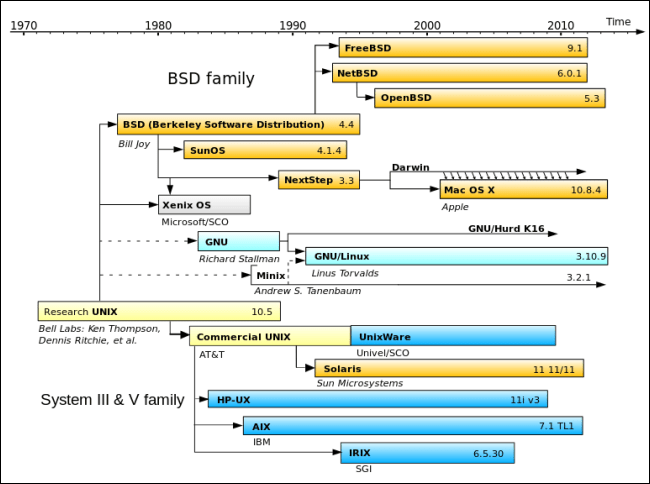It sure sounds like a cool name!
POSIX stands for Portable Operating System Interface and is a family of standards, specified by the IEEE designed to facilitate application portability across UNIX based systems.
If you wrote your programs to rely on POSIX standards, you'll be able to port them easily among a large family of Unix derivatives.
Honorable mentions of UNIX SYSTEMS :

Some of the standards POSIX defines :
1.C API
Greatly extends STANDARD C with things like:
- file operations: mkdir, dirname, symlink, readlink, link.
- networking: socket().
- memory management: mmap, mlock, mprotect, advise. Those APIs also determine the underlying system concepts on which they depend, forcing you to conform.
2.CLI utilities
E.g: cd, ls, echo ...
Many utilities are direct shell front ends for a corresponding C API functions and some are implemented by Bash as built-ins.
3.Shell language
Support for the shell language.
E.g :
a = 5;
echo "$a"; #to print the variable a.
4.Program exit status
ANSI C says 0 or EXIT_SUCCESS for success, EXIT_FAILURE for failure.
what POSIX adds:
- 126: command found but not executable.
- 127: command not found.
- >128: terminated by a signal.
5.Regular expression
Support for the two types of regex (BRE/ERE).
E.g :
echo 'a.1' | grep -E 'a.[[:digit:]]'
#search for a regex from the piped input
6.Filenames
- / is the path separator.
- NUL cannot be used.
- . is cwd, .. is parent.
- can only contain a-zA-Z0-9._-



Top comments (0)